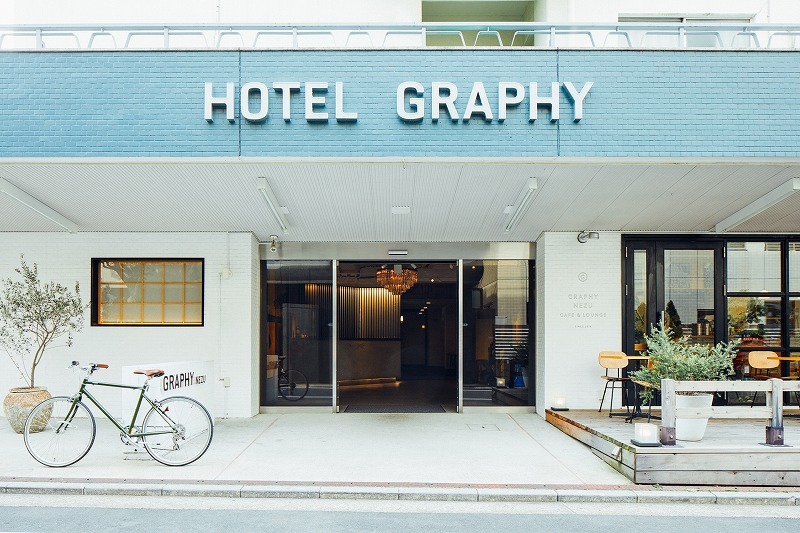Before cherry blossom season comes the blooming of equally beautiful plum blossoms. In this guide, you will discover Tokyo’s most beautiful and popular plum blossom festivals loved by locals and visitors alike where you can immerse yourself in the beauty of these early blooms and experience the rich cultural traditions surrounding them. From peaceful temples to calm gardens, each festival offers a unique blend of traditional performances, food and, of course, plum blossoms that capture the essence of Japanese springtime.
Click the button below to book your stay at The Millennials Shibuya.
Click the button below to book your stay at THE LIVELY TOKYO AZABUJUBAN.
Click the button below to book your stay at HOTEL GRAPHY NEZU.
Click the button below to book your stay at HOTEL GRAPHY SHIBUYA.
Plum Blossom Festival at Jindai Botanical Gardens
The Ume Garden at Jindai Botanical Garden comes alive with vibrant colors and melodies during the winter season. Featuring 150 plum trees boasting approximately 70 different varieties, visitors can marvel at vivid red and pink blossoms as part of the annual plum blossom festival, timed to coincide with the peak of the flowers’ bloom. Mark your calendars for February 23rd, when you can attend a special concert in the gardens at 11:15 a.m. and 2:15 p.m. On weekends and holidays, food trucks will also add to the festive atmosphere.
Date: February 14 – March 3
Price: 500 yen for adults, 250 yen for children
Hours: 9 a.m. – 5 p.m.
Setagaya Plum Blossom Festival
The Setagaya Plum Blossom Festival at Hanegi Park boasts approximately 650 plum trees. During weekends, festival-goers can enjoy plum-themed delicacies like madeleines and jelly, along with entertaining performances. Cultural events, such as koto performances and haiku classes, take place on weekends and public holidays, offering traditional experiences. Additionally, visitors can participate in outdoor tea ceremonies and witness mochi pounding demonstrations. Refreshment booths and horticulture stalls add to the festival atmosphere.
Date: February 10 – March 3
Price: Free
Hours: 10 a.m. – 4 p.m.

Yushima Tenjin Plum Blossom Festival
Yushima Tenjin Shrine has been a beloved “ume no meisho” (plum blossom spot) since the Edo period, drawing crowds of commoners to admire its beauty. The Ume Matsuri held in 1958 marked its 67th anniversary this year, growing grander with each passing year thanks to the support of local communities and organizations. With an average of 400,000 visitors during the festival, it has become a prominent Tokyo event, gracing the screens of various TV stations and adorning the pages of newspapers nationwide. The festival features a diverse array of events, including taiko performances, outdoor tea ceremonies and traditional dance shows. These activities, often held on weekends, contribute to the festival’s lively atmosphere. Don’t miss out on the festive street food while enjoying the Ume Matsuri or offering prayers for academic success at Yushima Tenjin.
Date: February 8 – March 8
Price: Free
Hours: 8 a.m. – 7:30 p.m.
Yoshino Baigō Plum Blossom Festival
The Yoshino Baigō Plum Blossom Festival, held annually since 2014, celebrates the town’s renowned plum trees, with over 25,000 planted across a 4km stretch. At Ōme Ume (Plum) Park, the exquisite beauty of plum blossoms is accompanied by traditional festivities, including tours, dances, performances and parades. Despite a setback in 2014 when all plum trees were replanted, the festival’s allure extends beyond the blossoms’ pink hues. The prime day to visit is Sunday, March 10, featuring stage events and park-wide parades.
Date: February 17 – March 20
Price: Free
Koubai Red Plum Blossom Festival
Every February, the Ushi-Tenjin Kitano Shrine hosts the Koubai Red Plum Blossom Festival, dedicated to celebrating the vibrant red plum blossoms, known as “koubai.” These blossoms hold special significance as they were beloved by the ancient poet Sugawara no Michizane, who is enshrined at the shrine. Visitors can immerse themselves in festivities. This year, on February 18th, attendees can enjoy a ceremonial event, captivating taiko performances and the chance for 200 guests to receive a small plum twig to take home. Throughout the festival, guests can indulge in traditional treats such as amazake and ginger tea on Saturdays, while Sundays offer delights like plum sweets, dried plums and the renowned Kitano no Fukukoubai umeshu, aged for 5–10 years. The festival also offers visitors the opportunity to receive unique blessings, such as special amulets and charms, from the shrine.
Date: February 1 – March 25
Price: Free
Hours: 6 a.m. – 5 p.m.

The Millennials Shibuya is the ultimate high-tech capsule hotel experience. 6-min walk from Shibuya Station. 120 SmartPod units, IoT integration, futuristic design, and coworking spaces.
Click the button below to book your stay at The Millennials Shibuya.

THE LIVELY TOKYO AZABUJUBAN crafts a luxurious lifestyle with 62 elegant rooms and attractive facilities including a rooftop bar with a great atmosphere.
Click the button below to book your stay at THE LIVELY TOKYO AZABUJUBAN.

A little urban oasis located in the heart of Yanesen and near Ueno station. This hostel-like space is the perfect place to come together and take a break from busy Tokyo.
Click the button below to book your stay at HOTEL GRAPHY NEZU.

Explore city history at our hybrid hostel + hotel. GRAND OPENING in March 2024. Immerse in urban charm and a unique stay experience.
Click the button below to book your stay at HOTEL GRAPHY SHIBUYA.